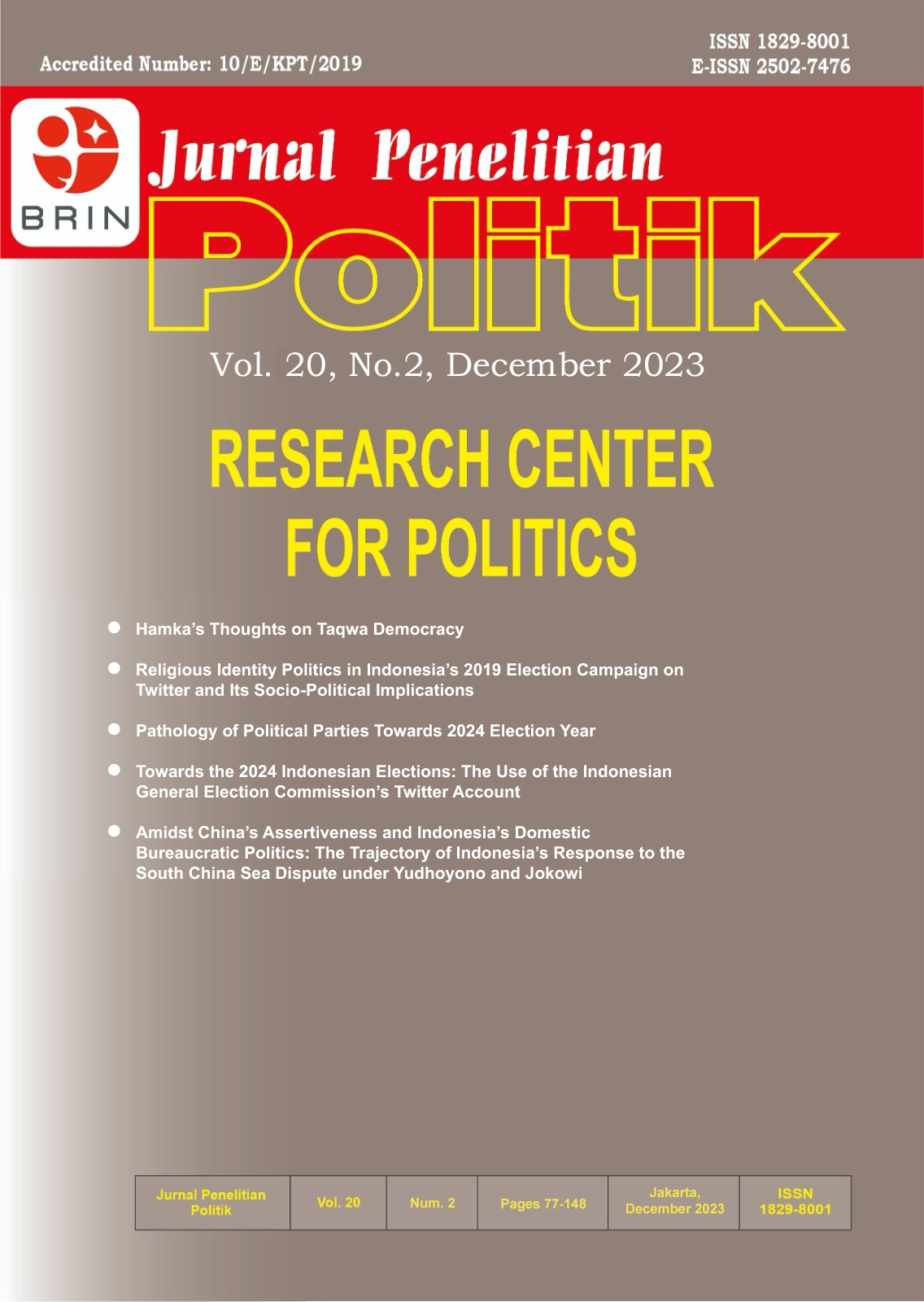Amidst China’s Assertiveness and Indonesia’s Domestic Bureaucratic Politics: The Trajectory of Indonesia’s Response to the South China Sea Dispute under Yudhoyono and Jokowi
DOI:
https://doi.org/10.14203/jpp.v20i2.1338Keywords:
China’s assertiveness, domestic bureaucratic politics, Indonesia, response, the South China Sea disputeAbstract
This article explains how China’s increased assertiveness in recent decades and the bureaucratic politics inside
Indonesian government institutions have impacted Indonesia’s response to the South China Sea dispute. Different
from what others have found, this article will not discuss whether Indonesia’s response is proper in dealing with
China’s assertiveness or vice versa. Instead, by applying the theory of Neoclassical Realism which incorporates
the variables of external pressure and domestic politics, this article aspires to compare Indonesia’s response under
the leadership of Yudhoyono and Jokowi. Conducting a comparative analysis serves as a means to encapsulate
and comprehend the trajectory of Indonesia’s responses to the South China Sea dispute. Moreover, employing
a qualitative descriptive research methodology, this study revealed that the assertive stance of China and
Indonesia’s bureaucratic politics have influenced variations in the extent to which Indonesia employs multilateral
and unilateral strategies in its response during the leaderships of Yudhoyono and Jokowi. Based on these findings,
this article also formulates a model explaining Indonesia’s response to the South China Sea dispute
Downloads
Published
How to Cite
Issue
Section
License
Copyright (c) 2025 Gaffar Mu’aqaf, Kevin Ali Sesarianto

This work is licensed under a Creative Commons Attribution-ShareAlike 4.0 International License.

